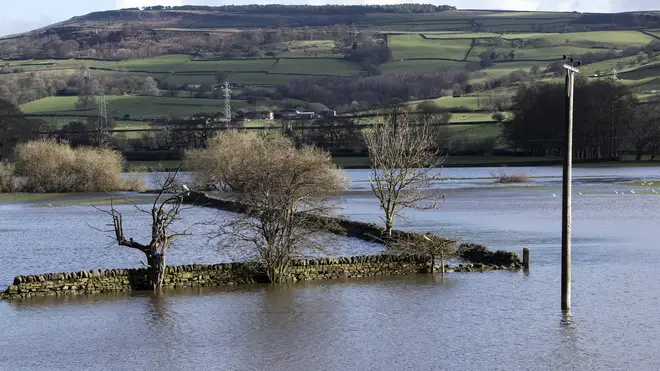
Iain Dale 7pm - 10pm
9 May 2019, 12:52 | Updated: 9 May 2019, 12:56

Communities in coastal areas and those at risk of flooding in the UK may have to move as climate change increases and accelerates the threat of floods, Environment Agency bosses have claimed.
Communities may have to be moved away from areas at risk of flooding as Environment Agency bosses warn that "we cannot win a war against water" by building higher flood defence.
Mrs Howard Boyd said the Environment Agency is preparing for a potential 4°C rise in global temperature and urgent action is needed to tackle more frequent, intense flooding and sea level rise.
The Environment Agency also predicts that climate change and population growth are set to double the number of properties built on the flood plain over the next 50 years.
Warning that in some places "the scale of the threat may be so significant that recovery will not always be the best long term solution" the Environment Agency Chair warned that some communities would need help to "move out of harm's way."
Ms Howard Boyd said urgent action was needed to tackle more frequent, intense flooding and sea level rises driven by rising temperatures, and called for more resilient homes and infrastructure.
An average annual investment of £1bn will be needed over the next 50 years in England for traditional defences such as barriers and sea walls, which could be funded by a mixture of government and private sources.
The strategy says that "In some cases, the scale of flooding or coastal change may be so significant the concept of ‘build back better’ may not be appropriate. This may mean potentially moving communities out of harm’s way in the longer term."
The strategy calls for all infrastructure to be flood resilient by 2050
Currently, two-thirds of properties in England are served by infrastructure in areas at risk of flooding and for every person who suffers flooding, around 16 more are affected by the loss of services such as power, transport and telecommunications.